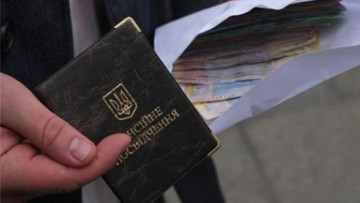I am studying in the third year of the State University of Economics and Technology.I specialize in contractual, economic and corporate law, in particular, I provide consultations and write articles.
Dividends in a limited liability company (LLC) are part of the profit that the company distributes to its participants (owners of shares) in the form of cash or other assets. However, unlike joint-stock companies, where dividends are paid to shareholders, in LLCs, profit is distributed among participants who own shares in the authorized capital.
Dividend distribution procedure
- Making a decision on the payment of dividends: The decision on the payment of dividends in the LLC is made by the general meeting of participants. For this, a meeting is held at which the amount of dividends, the date of payment and other details are determined.
- Calculation of the amount of dividends: The amount of dividends is calculated on the basis of the profit of the company. Usually, this calculation is carried out in proportion to the shares of the participants in the authorized capital. That is, each participant receives dividends depending on his share in the company.
- Periodicity of payments: Dividends can be paid annually, quarterly or at another specified period. The procedure and periodicity of payments are determined by the company's charter or a decision of the general meeting.
Form of payment: Dividends can be paid in cash or in the form of other assets (such as company property). Cash dividends are usually paid into the participant's bank account or through other financial instruments.
Documentation
- Minutes of the general meeting: The decision on the payment of dividends must be documented in the form of minutes of the general meeting of participants, which indicate the amount of dividends, the date of payment and the order of distribution.
- Accounting statement: After deciding on the payment of dividends, the accounting department of the company must make appropriate entries in the accounting system, reflect the distribution of profits and prepare documents for the payment of dividends.
- Notification of members: The members of the company must be notified in writing of the decision to pay dividends, as well as the amount they are to receive and the date of payment.
Restrictions on the payment of dividends:
According to Ukrainian legislation, there are specific restrictions and cases when a limited liability company (LLC) does not have the right to decide on the payment of dividends or to pay them. These restrictions are aimed at ensuring the financial stability of the company and protecting the interests of creditors. Here is a detailed description of each of these cases:
- Settlements have not been made with the participants or their legal successors
The company does not have the right to decide on the payment of dividends or to pay dividends if:
Settlements with participants have not been made: If the company has not fulfilled its financial obligations to participants who have terminated their participation in the company (for example, due to the sale of shares or withdrawal from the company), or has not made settlements with the legal successors of participants.
Successors of participants: These can be persons who inherited shares in the company from a deceased participant or received them on the basis of other legal succession.
Legislation requires: Before paying dividends, companies must settle with such persons to avoid situations where obligations to former or successor participants will not be fulfilled.
- Lack of property to meet the demands of creditors
The company does not have the right to decide on the payment of dividends or to pay dividends if:
Lack of assets to satisfy creditors' claims: If, after the payment of dividends, the company does not have sufficient assets to cover the claims of creditors whose obligations have come due, or if such obligations will not be satisfied due to the payment of dividends.
Insolvency: This includes cases where a company is or will become insolvent as a result of a decision to pay dividends.
The legislation requires: Before deciding on the payment of dividends, the company must assess its solvency and ensure that the payment will not adversely affect the ability to cover its obligations.
- Non-payment of contributions by participants
The company has no right to pay dividends to a participant who:
Did not contribute: If a participant has not fully or partially fulfilled his obligations to contribute to the authorized capital of the company, he is not entitled to receive dividends.
The legislation requires: As long as the participant does not fulfill the obligation to make contributions, the company cannot pay him dividends.
- Additional conditions stipulated by the statute
In addition to the above restrictions, the articles of association may provide for other conditions or restrictions on the payment of dividends. This may include:
- Prohibition on the payment of dividends under certain conditions: For example, in the presence of financial difficulties, which are not directly specified in the law, but defined in the company's charter.
- Specific conditions for different categories of participants: For example, defining special rights for participants who contribute more or less.
- Legislation requires: The statute of the company may establish additional conditions, which should not contradict the general requirements of the law, but may supplement them with specific rules regarding the payment of dividends.
Restrictions on the payment of dividends in LLCs are aimed at ensuring financial stability and protecting the rights of creditors and members of the company. The company must comply with all legal requirements and conditions stipulated by the statute in order to avoid financial problems and legal consequences.
Lawyer advice in collecting the amount of dividends:
Collecting the amount of dividends is a process in which a lawyer can provide important assistance in ensuring the rights of company members and compliance with legal regulations. Here is a detailed description of the dividend recovery process and the role of a lawyer in it:
- Legal analysis of the situation and lawyer consultation:
Evaluation of rights: The types of legal services must check the documents that confirm the participant's right to receive dividends, such as the decision of the general meeting on the payment of dividends, minutes of meetings, the company's charter and contracts.
Verification of legality: It is important to make sure that the company is really obliged to pay dividends in accordance with the current legislation and the decision of the general meeting.
- Conducting a pre-trial settlement:
Filing a claim: The lawyer help will prepare and send an official claim to the company demanding payment of the due dividends. The claim should clearly state the amount to be paid, reference to documents confirming the right to dividends, and establish a deadline for fulfilling the claim.
Communication with the company: The lawyers online can negotiate with representatives of the company to reach an agreement on the payment of dividends without the need for legal proceedings.
- Legal services for preparing and filing a lawsuit:
Preparation of a statement of claim: If the pre-trial settlement did not lead to a result, the lawyer will prepare a statement of claim to the court. The statement of claim must clearly state all the circumstances of the case, evidence confirming the right to dividends, and requirements for the defendant.
Filing a lawsuit: A lawsuit is filed with a court competent to hear corporate cases. The lawyer represents the interests of the plaintiff in the court process, conducts the case, submits the necessary documents and evidence base.
- Court proceedings:
Presentation of evidence: The lawyer services provides evidence confirming the legitimacy of the demand for the collection of dividends, such as decisions of general meetings, financial reports of the company, documents confirming contributions to the authorized capital.
Protection of interests: The lawyer represents the client's interests in court, answers the judge's questions, provides explanations and arguments in favor of the plaintiff.
Services of a lawyer to appeal decisions: If the court decision does not satisfy the plaintiff, the lawyer can prepare an appeal or other documents to challenge the decision in the appeal or cassation instance.
Dividends are an important element of the company's financial policy, which reflects its ability to generate income and maintain beneficial relations with participants. They can also be an important indicator of a company's financial health and its profit distribution strategy.




































